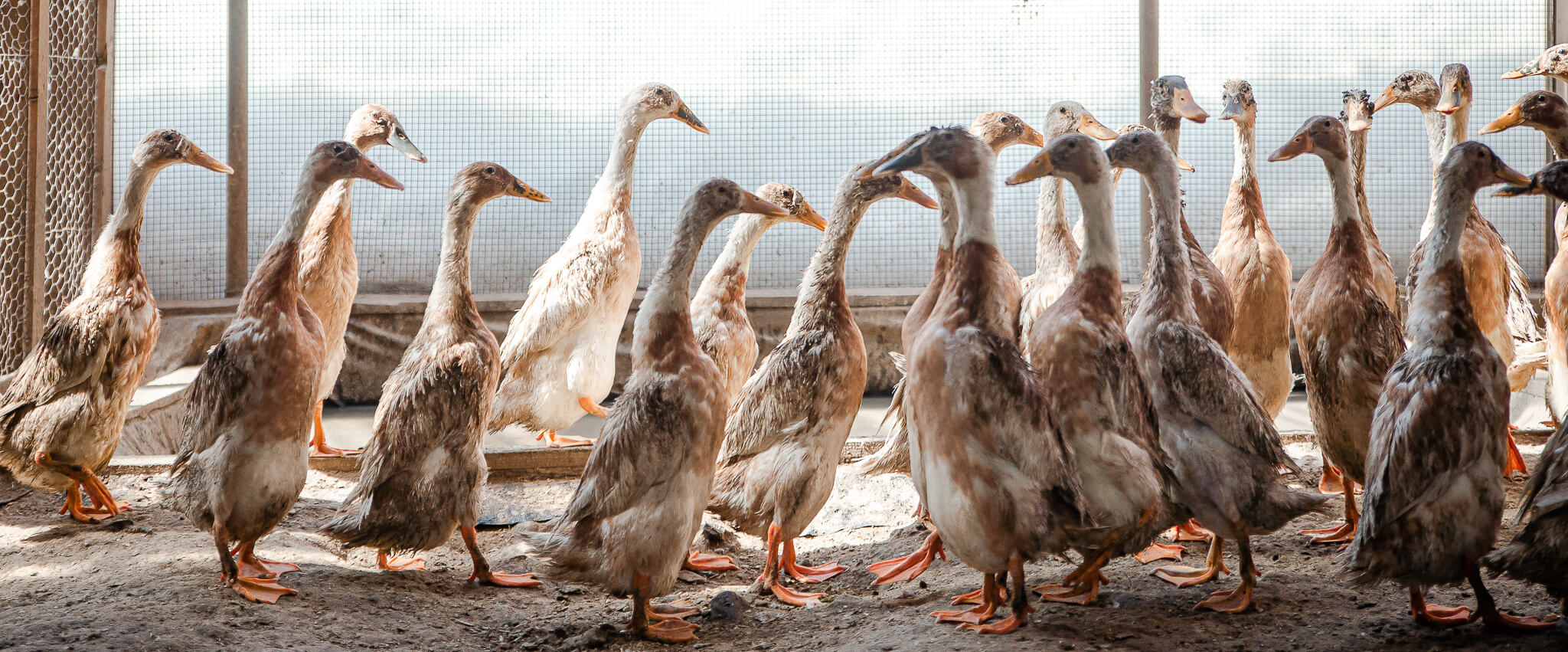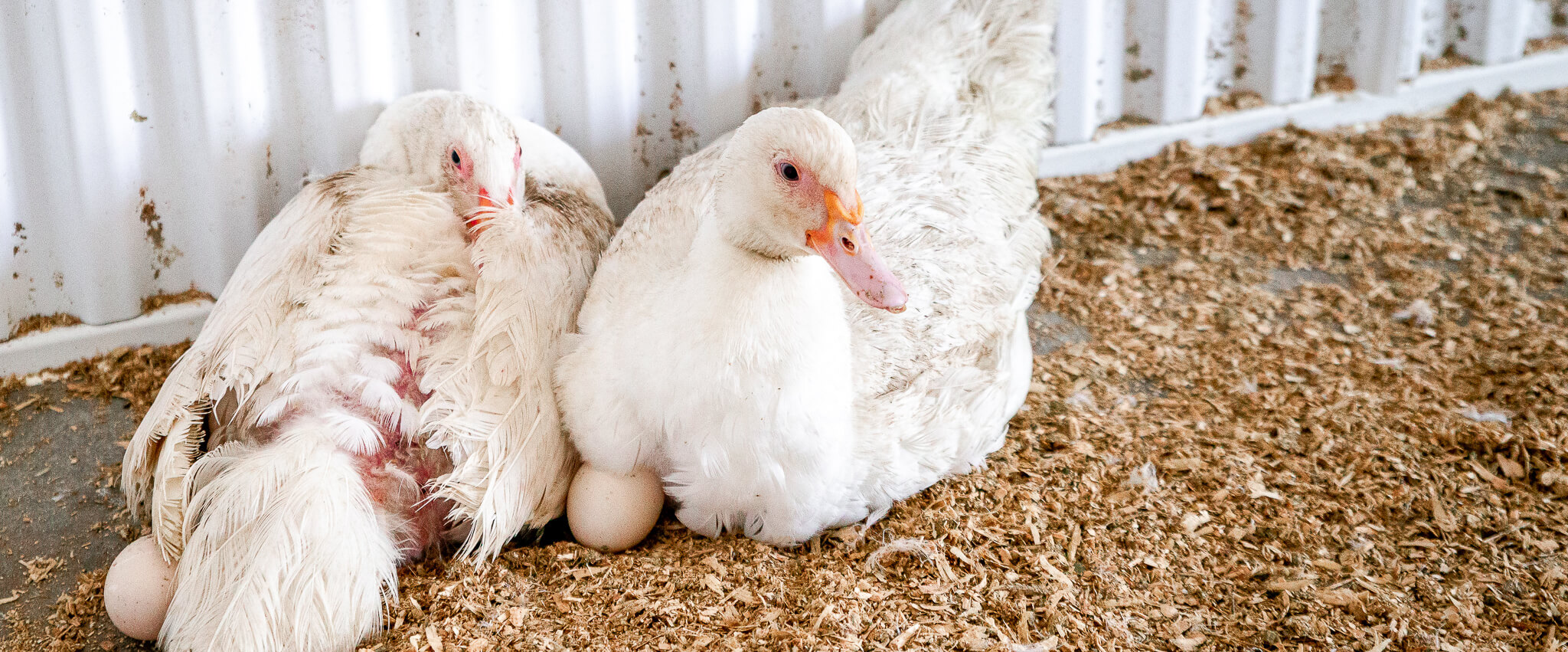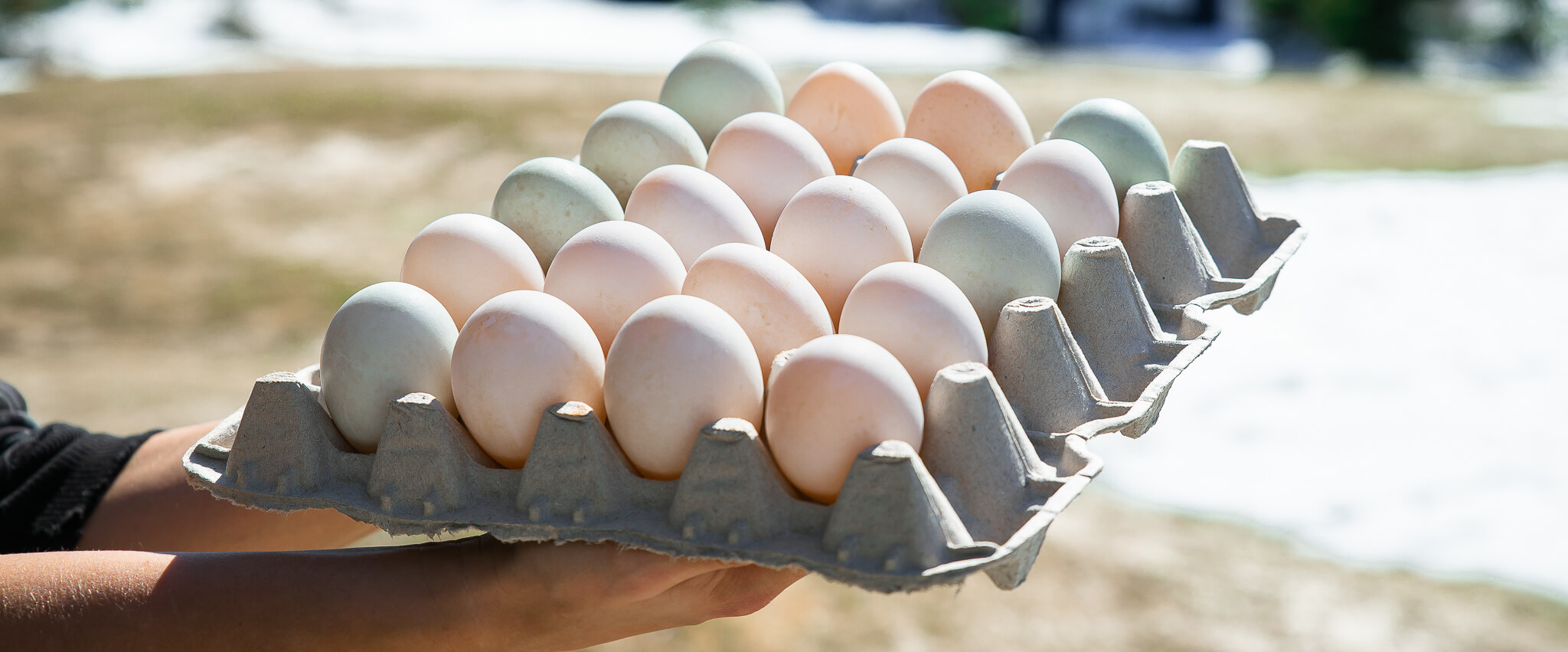Our team gets to know day-old ducklings!
When our team went to Stukely-Sud to visit our new duck egg partners À la canne blanche, we hadn't expected to help owners Daniel and Maryse feed their hour-old ducklings their first meal. We were overjoyed to share the excitement of bringing these soft yellow friends home to a duo who’d been waiting over two years for their arrival.
For two visually impaired folks, egg farming may seem like an impossible task, but Daniel and Maryse (being nothing close to ordinary) were up for the challenge. Starting their farm stemmed from their deep and apparent love for nature and living things, paired with a heck of a lot of resilience. After Daniel left his job as a jurist and Maryse left her job as a massage therapist, they began dedicating their entire lives to the farm, even building it from scratch entirely themselves.

When looking for partners to work with us, we search for those who put their animals first. When it comes to Daniel and Maryse, they’re committed to giving their ducks a happy and healthy life - spending hours tending to their 300+ birds daily, with no other employees (only their wonderful friends who help out when they can). They give their ducklings a comfortable home, covered in wood shavings, warm light, and water, gradually enlarging the space as they grow stronger and more resilient to their surroundings.
At 20 weeks old, they let the ducklings roam outside every day, where they have a slanted water basin to bask in during the warmer months. At around 35 weeks, the ducks begin to lay eggs (about two to three a week), a process they only do when they feel comfortable and safe, a testament to their environment.

When it comes to the eggs themselves, there are a few things that set them apart: they're typically bigger than a standard chicken egg by about half, with a thicker shell (giving them a longer shelf life) that vary in colour depending on the pigment of the duck's feathers. They also have a richer, bigger yolk and a higher amount of protein and nutrients.

You can use duck eggs in the same way you use chicken eggs, whether you're frying, poaching, boiling, scrambling, or baking with them, but because they're typically bigger, it's best not to substitute them one to one. This isn’t an exact science and might take some practice, so it's best to play around with them in your recipes. And tip from Daniel: instead of salting or seasoning your duck eggs after they’re cooked, add the salt to the butter you're cooking with to keep the egg’s unique texture.
Daniel and Maryse have yet to take more than a couple days off since they started, but this doesn't bother the two farmers, who love the natural flow of their routine. They're on duck time - focussing on the individual needs of their animals and their environment.
They even have a duck named Mademoiselle, who has a crooked neck. When we pointed her out, they told us she lives a happy life and can do anything her friends can, adding, "Who are we to discriminate?”
